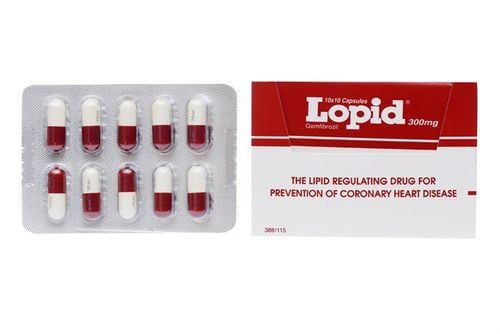This is an automatically translated article.
Almonds are considered one of the nutritious nuts, favored by many countries around the world. It is not only a snack but also provides a lot of essential nutrients for the body, such as fiber, vitamins and other important minerals, thereby preventing a variety of potential risk factors. health hidden.
1. Almonds are rich in nutrients
Almond is a nut belonging to the tree Prunus dulcis, also known as the almond tree. They are native to the Middle East, however the United States is currently the largest producer of almonds worldwide.
You can easily find almonds in stores, they are usually sold raw or pre-roasted. In addition, almonds are also used to produce almond milk, oil, butter, flour or marzipan.
Besides, almonds are a very rich source of nutrients. One serving of almonds, equivalent to 28 grams, contains:
Fiber: 3.5 grams Protein: 6 grams Fat: 14 grams (9 of which are monounsaturated fats) Vitamin E: 37% of the RDI Manganese: 32% of the RDI Magnesium: 20% of the RDI Furthermore, almonds also contain significant amounts of copper, vitamin B2 (riboflavin) and phosphorus. Most almonds provide only 161 calories and 2.5 grams of digestible carbohydrates. Meanwhile, the body usually does not absorb 10-15% of their calories due to some fats inaccessible to digestive enzymes.
In particular, almonds are also high in phytic acid, a substance that helps bind certain minerals and prevent them from being absorbed. Although this acid is considered one of the healthy antioxidants, it can slightly reduce the amount of iron, zinc and calcium found in almonds.

Hạnh nhân là một nguồn thực phẩm rất giàu chất dinh dưỡng
2. Provides Antioxidants
It can be said that almonds are an excellent source of antioxidants. Normally, antioxidants protect against oxidative stress, which can damage molecules in cells and contribute to inflammation, aging and cancers.
The powerful antioxidants in almonds are mainly concentrated in the brown skin. A clinical trial of 60 regular cigarette smokers showed that consuming about 84 grams of almonds per day was associated with a 23-34% reduction in oxidative stress biomarkers over a 4-week period. These findings also support other studies that have shown that eating almonds with meals can help reduce several markers of oxidative damage.
3. Contains a lot of vitamin E
Vitamin E is a family of fat-soluble antioxidants. These antioxidants tend to accumulate in the body's cell membranes and protect cells from oxidative damage.
Almonds are one of the top food sources of vitamin E, with just 1 ounce (28 grams) of almonds providing 37% of the RDI. Several studies have shown that the high amount of vitamin E in almonds helps to prevent the risk of heart disease, cancer, and Alzheimer's disease.

Hạnh nhân là một trong những nguồn thực phẩm hàng đầu cung cấp vitamin E
4. Supports blood sugar control
Almonds are a nut low in carbs but high in healthy fats, protein, and fiber. This makes them a perfect choice for people with diabetes.
Another benefit of almonds is the abundance of magnesium. This mineral is involved in more than 300 body processes, including blood sugar control. Currently, the recommended intake for magnesium is 310 - 420mg, while 2 ounces of almonds can provide nearly 150mg of this important mineral.
On the other hand, about 25-38% of people with type 2 diabetes have a magnesium deficiency. Therefore, supplementing with this essential mineral is extremely important, helping to significantly reduce blood sugar levels, while improving insulin function in the body. Even people without diabetes who eat almonds regularly can significantly reduce insulin resistance.
Thus, foods high in magnesium like almonds not only help prevent metabolic syndrome but also improve type 2 diabetes – both of which are major health problems.
5. Reduce high blood pressure
The magnesium mineral found in almonds can also effectively reduce high blood pressure, which is one of the leading causes of heart attacks, strokes and kidney failure.
Magnesium deficiency is strongly associated with high blood pressure, regardless of whether you are overweight or not. Studies have shown that getting enough magnesium can help reduce high blood pressure levels. In case you are not meeting the dietary recommendations for magnesium supplements, you can include almonds in your daily diet to improve your blood pressure levels.

Ăn hạt hạnh nhân vào chế độ ăn hàng ngày để cải thiện mức huyết áp
6. Lower cholesterol levels
High blood levels of LDL lipoprotein, also known as bad cholesterol, is a leading risk factor for cardiovascular problems. An unbalanced and unhealthy diet can greatly affect the level of LDL in the blood. However, some studies have shown that regular almond consumption can partially solve this problem.
A 16-week study in 65 people with prediabetes found that a diet containing 205 calories from almonds reduced LDL cholesterol levels by an average of 12.4 mg. /dL. In addition, when eating about 42 grams of almonds per day can reduce LDL cholesterol levels by 5.3 mg/dL while maintaining good cholesterol levels, and also reduce a large amount of belly fat.
7. Eating almonds helps prevent harmful oxidation of LDL cholesterol
In addition to lowering LDL levels in the blood, eating almonds also helps protect bad cholesterol from oxidation, which is an important turning point in the development of heart disease.
The skin of almonds is also rich in polyphenol antioxidants, which prevent cholesterol oxidation in test tubes and animal studies. Its effect can be even stronger when combined with other antioxidants such as vitamin E. If you eat almonds continuously for 1 month can reduce the oxidized LDL cholesterol by 14%, thereby significantly reduces the risk of heart disease over time.

Ăn hạt hạnh nhân cũng giúp bảo vệ cholesterol xấu khỏi quá trình oxy hóa
8. Increase satiety
Almonds are very low in carbs but high in protein and fiber. Both of these substances have the ability to make the body feel full faster, and help you eat fewer calories.
In a 4-week study with more than 100 participants, it was found that consuming 43 grams of almonds per day significantly reduced hunger and appetite. This is also especially beneficial for those who want to maintain a balanced and harmonious figure.
9. Effective weight loss
Some nuts contain a few nutrients that the body struggles to break down and digest. In fact, the body does not absorb about 10-15% of the calories in nuts. In addition, eating nuts can slightly boost the body's metabolism.
Because of their satiating properties, nuts are a great addition to an effective weight loss diet. In a recent study, eating a low-calorie diet with 84 grams of almonds was associated with a 62% increase in weight loss compared to a diet rich in complex carbohydrates. In addition, those who followed the almond-supplemented diet also noticed a marked improvement in waist circumference, along with other positive health signs.
Although almonds contain a lot of fat, it is still a friendly food for people who want to lose weight.
Please dial HOTLINE for more information or register for an appointment HERE. Download MyVinmec app to make appointments faster and to manage your bookings easily.
Reference source: healthline.com
SEE MORE
Nutritional value from nuts 12 foods rich in Omega 3 Good nuts, many good nutrients for pregnant women













